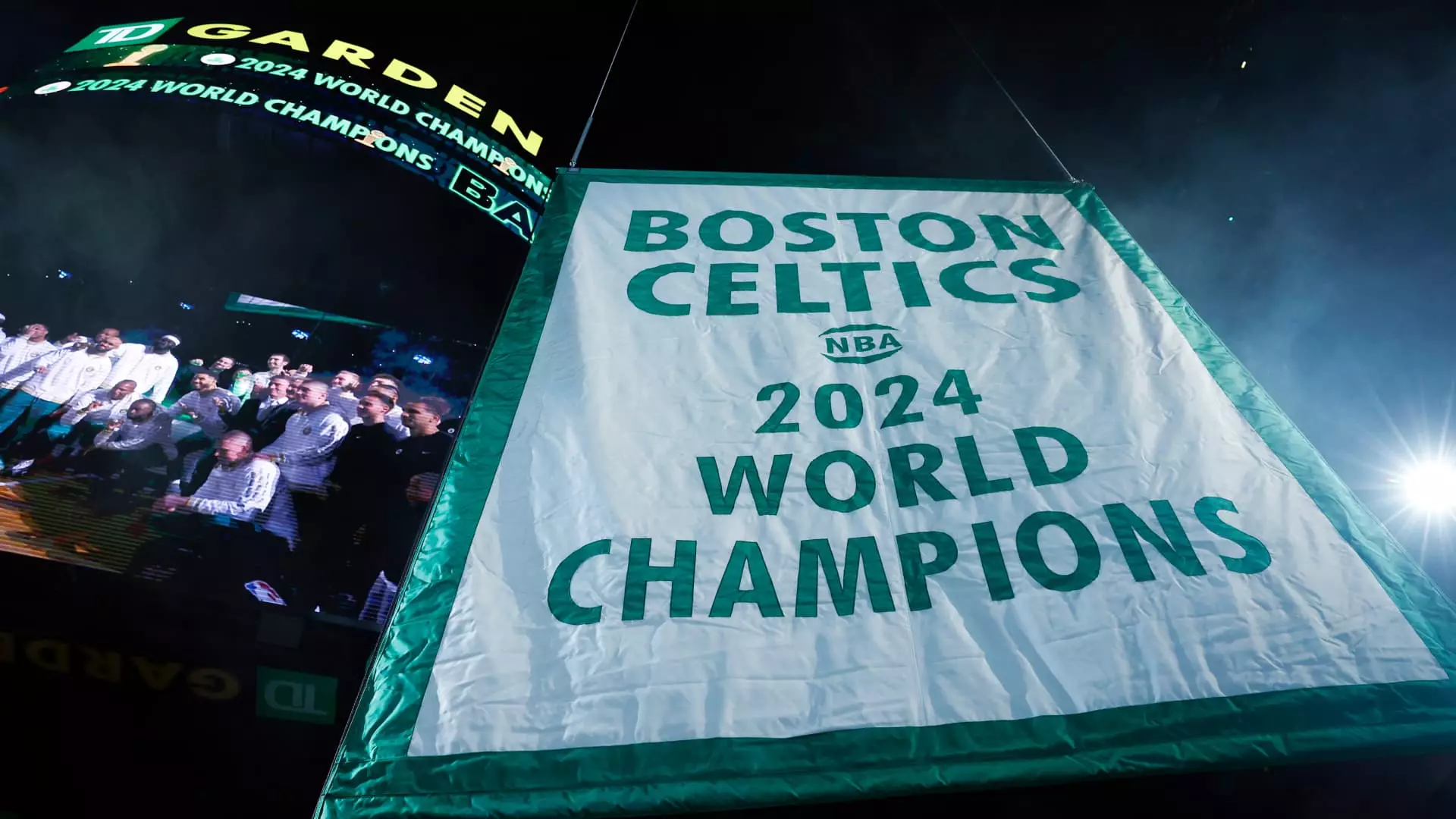The sale of the Boston Celtics for an astounding $6.1 billion marks a watershed moment in the realm of professional sports, emblematic of both the soaring valuations of franchises and the seismic shifts occurring in ownership structures. This transaction, orchestrated by a consortium led by Bill Chisholm, a private equity executive, signals not only the immense financial power held by the private sector but also raises pressing questions about the direction of community engagement and responsibility when it comes to sports teams. Is this the dawn of sports franchises being treated merely as financial instruments?
The backdrop of this deal is a landscape where individual ownership is becoming increasingly rare. Gone are the days when passionate fans and local businessmen could band together to support their beloved teams; we now see financial giants, like Sixth Street—who are investing over a billion dollars—taking the helm. While it’s exhilarating on one hand to witness such significant investments in the storied franchise of the Celtics, one must question whether this model benefits the community or merely fills the coffers of investors.
Altruism or Ambition? The Face of Ownership
Chisholm’s statements regarding his loyalty to Boston and commitment to the Celtics as cultural cornerstones seem earnest. The charming rhetoric about responsibility toward the city is palpable. Yet, one cannot help but wonder whether such sentiments can transcend the cold calculations of boardroom decisions. The NBA, after all, does more than provide entertainment; it serves as a communal foundation that brings together diverse populations.
His background as a lifelong Celtics fan presents a personal narrative that is likely to resonate with many, but we must interrogate whether nostalgia and emotion can truly guide strategic decision-making. While Chisholm may understand Boston’s heartbeat, the question remains whether financial motivations will eclipse the passion that should characterize the leadership of community-centric entities.
The Erosion of Local Identity
With private equity increasingly stepping into the ownership rings of major sports teams, we may be witnessing the gradual erosion of local identity in the world of sports. Teams begin as a reflection of their communities but can become detached when removed from individual or familial stewardship. Chisholm, along with other members of his investment group, may well lament this imbalance, but can they reverse this trend when the stakes are so high?
The NBA’s embrace of private equity reflects a broader shift throughout professional sports; teams are morphing into investments akin to stocks rather than local institutions that resonate with the fans who support them. Boston’s historic franchise has won 18 championships, a testament to its legacy, yet the very essence of that legacy may be diluted when viewed solely through the lens of financial performance.
Financial Gains versus Community Values
The impending sale of the Celtics signifies a crucial juncture in the business of basketball, one where massive media rights contracts, such as the NBA’s recent $76 billion agreement with industry heavyweights, further complicate ownership dynamics. Although such growth may seem beneficial, it obscures the moral responsibility that franchise owners should have toward their constituencies. This new normal is not just about winning championships; it’s about ensuring that the fabric of community remains intact amid the drive for economic profit.
Chisholm remains linked with the previous ownership group led by the Grousbeck family, a connection that may infuse continuity into the ownership model. Wyc Grousbeck’s endorsement of Chisholm speaks to a desire for communal fidelity amidst a shift towards capital-driven decisions. However, the question of whether this new leadership can maintain the Celtics’ deep-rooted connection to Boston remains unanswered. Will the Celtics grow into a franchise that prioritizes profits over people?
The stakes have never been higher. The NBA is verging on becoming a sanitized spectacle where the fans’ voice risks being drowned out by the clatter of financial dealings. As we embark on this new chapter, we must grapple with the ultimate paradox of sports ownership in an era dominated by private equity: is financial success leading to a richer community experience, or is it simply transforming the fans’ beloved teams into mere commodities?


Leave a Reply